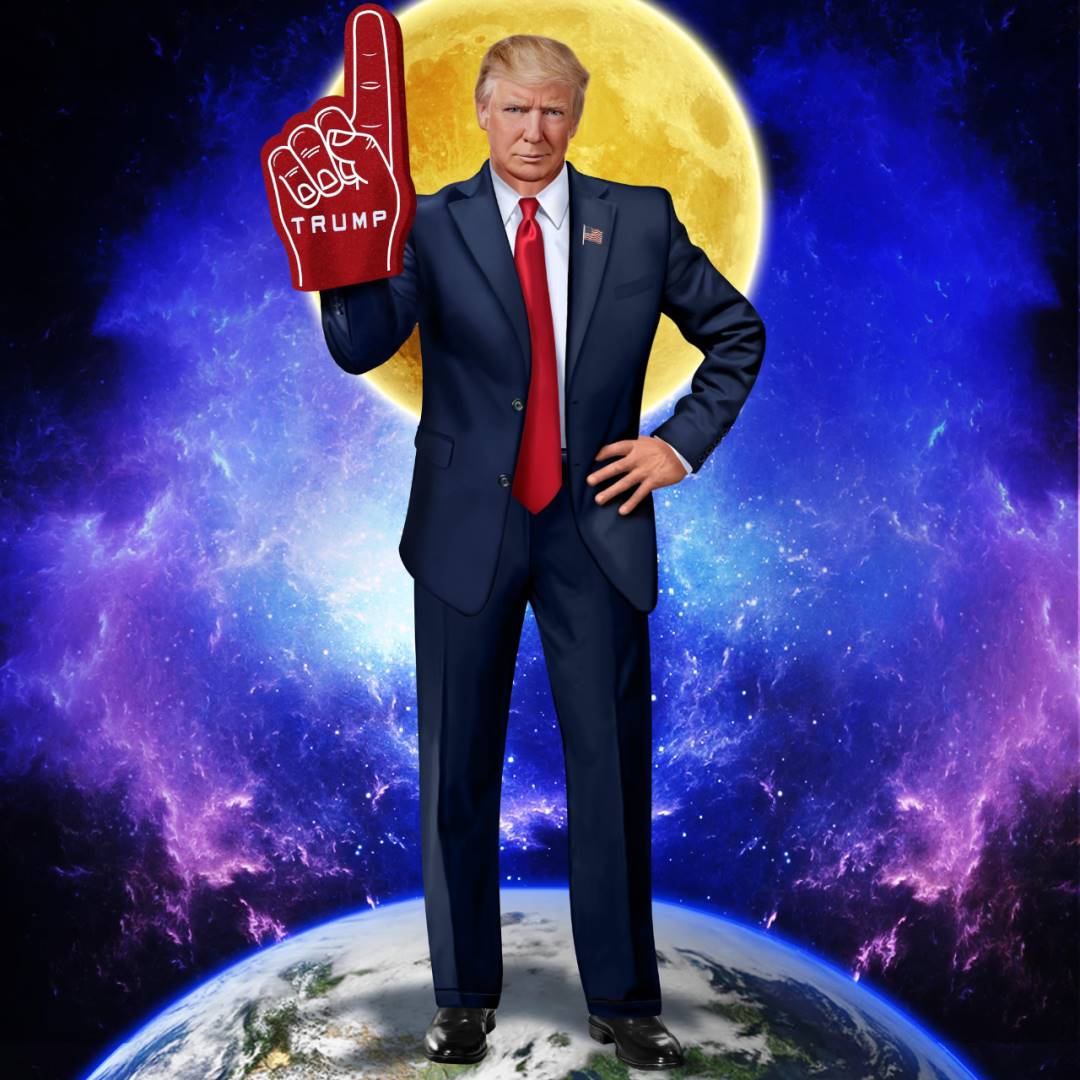Author: imToken
Starting from 2024, digital assets such as BTC have gradually entered the mainstream vision and become an important topic for institutional investment and cultural discussion. Moreover, with the listing and issuance of Bitcoin spot ETFs in the US securities market, the holdings of institutions and enterprises have also increased rapidly, further strengthening the role of BTC as the "digital gold".
Supporters generally believe that BTC can become a powerful inflation hedging tool, with hedging capabilities comparable to gold. At the same time, with the passage of time, BTC will appreciate significantly, and more financial institutions will accept it as a means of value storage.
In the 2024 US presidential election, the Republican presidential candidate Trump publicly expressed his support for the crypto industry and proposed the concept of "establishing a BTC national reserve", which immediately brought BTC to the forefront of public attention and ignited the crypto market's expectations for the future.
Now, the general election campaign for the US presidential election has been phased out, can Trump's charismatic "establishing a BTC national reserve" plan "turn ideals into reality"?
Review of the Concept
Cynthia Lummis, the Republican senator from Wyoming, is a representative of the crypto-progressive faction who actively promotes the development of digital assets and criticizes the Securities and Exchange Commission's harsh enforcement strategy against the crypto industry. In July 2024, Cynthia Lummis also proposed a bill related to BTC assets, the core content of which includes:
Proposing to establish a decentralized BTC storage facility network (commonly referred to as the BTC vault) managed by the US Department of the Treasury.
Proposing that the US government acquire up to 200,000 BTC per year over the next 5 years, which would bring the US government's BTC reserve to 1 million BTC, accounting for about 5% of the total BTC supply.
Proposing that the US government hold the above BTC for at least 20 years, and these BTC can only be used specifically to repay US debt. Within 2 years of the implementation of the bill, the proportion of the US government's sale of the above BTC cannot exceed 10%.
Proposing to re-evaluate the Gold Certificates, adjusting the value of the gold certificates held by the Federal Reserve System to the actual market value, in order to actually increase the asset value and provide financial support for the government's acquisition of BTC.
In retrospect, Cynthia Lummis' BTC bill seems to be in line with Trump's proposed "establishing a BTC national reserve" plan. After Trump won the general election, Cynthia Lummis also publicly expressed her excitement on social media platforms.
Current Progress
On October 25, 2024, the Pennsylvania House passed the "Bitcoin Rights Act" (Pennsylvania House Bill 2481) with a vote of 176 in favor and 26 against, opening a new chapter in the regulation of digital assets.
The core provisions of the "Bitcoin Rights Act" include: individuals and enterprises have the right to self-custody digital assets, operate blockchain nodes, and conduct transactions without interference from restrictive municipal regulations.
The bill was initiated by Republican Congressman Mike Cabell and received bipartisan support, reflecting the growing recognition of the transformative potential of blockchain technology by both parties. However, according to the media platform Forbes, all 26 votes against the "Bitcoin Rights Act" came from Democratic representatives, but prominent Democratic members supported the passage of the "Bitcoin Rights Act" and emphasized that it could stimulate economic growth and contribute to improving financial inclusion.
After the passage of the "Bitcoin Rights Act", Republican Congressman Mike Cabell teamed up with another Republican Congressman Aaron Kaufer to file a legislative application for the "Bitcoin Strategic Reserve Act" (Pennsylvania House Bill 2664) on November 14, 2024. The core proposal of this bill is to allow the Pennsylvania State Treasurer to allocate 10% of the General Fund, Rainy Day Fund, and State Investment Fund to the purchase of BTC and digital asset exchange-traded products, echoing Trump's proposed BTC national reserve plan.
According to the media platform Decrypt, if the above bill is passed, the BTC acquisition scale of Pennsylvania alone may reach $970 million.

△ Source: Trump Digital Trading Card #10004
Possible Future
In addition to the proposal to establish a BTC national reserve plan during the election stage, the support policies for the crypto industry publicly released by the Trump team after winning the presidential election include:
🔹 Establishing a dedicated official position for digital asset policy in the White House. A Bloomberg report once stated that Trump plans to appoint a "crypto asset czar". Currently, the budget, team, and regulatory powers of this government position are not yet clear, but as an internal position of the US government, it is speculated that the primary function of this position will be more inclined towards political affairs rather than direct policy-making, and the official in this position is more likely to become a liaison between federal regulatory agencies and the outside world.
🔹 Entrepreneur Elon Musk and Vivek Ramaswamy, supporters of Trump, will jointly lead the "Department of Government Efficiency" (abbreviated as DOGE, the same name as the digital asset supported by Elon Musk, but this is not an official federal government department) to be established after Trump takes office as president, aiming to provide advice and guidance from outside the government, promote large-scale structural reforms, and create an unprecedented entrepreneurial approach to government.
Although the "Department of Government Efficiency" does not involve reforming the crypto industry, the news of its establishment was announced on November 12, 2024, and the market capitalization of the digital asset DOGE, which shares the same name, suddenly started a bullish trend, reaching a recent high on November 23, 2024, with a gain of about 56% compared to the day before the announcement.
Apart from political activities, after winning the presidential election, Trump's business group has also been active in the crypto market:
🔹 According to a report from the Financial Times, Trump Media & Technology Group, Trump's company, is considering acquiring the digital asset trading platform Bakkt, which was launched by the parent company of the New York Stock Exchange, Intercontinental Exchange.
The digital asset trading platform Bakkt has close ties to Trump's political career. Bakkt's first CEO was Kelly Loeffler, who was later appointed as a US Senator, and she is also the wife of Intercontinental Exchange CEO Jeffrey Sprecher, who was the co-chairman of Trump's inauguration committee.
🔹 On November 18, 2024, Trump Media & Technology Group filed a trademark application for "TruthFi" with the US Patent and Trademark Office. According to the content of the trademark application document cited in the media report, the scope of use of this trademark covers the digital wallet and payment service-related fields. Many industry insiders speculate that this may be a signal that Trump's business group is preparing to formally enter the digital asset trading service sector.

Doubts and Challenges
On November 28, 2024, the daily highest price of the BTC market value reached $99,660, approaching the $100,000 mark, setting a new recent high. Since Trump's victory in the general election on November 5, 2024, the increase in BTC market capitalization has exceeded 40%.
Although market sentiment is high, most industry insiders are betting that the Trump administration will be more crypto-friendly than the Biden administration, not only implementing regulatory measures more favorable to the crypto industry, but also further enhancing the status of digital assets. However, there are also cautious financial scholars and industry insiders who have criticized and questioned this. They generally believe that the concept of establishing a BTC national reserve plan is innovative, but it is impossible to become a reality in the near future. These equally thoughtful questioning views are mainly focused on the following aspects:
The asset stability of BTC is limited, and it has not yet been able to demonstrate the stability required to serve as a reserve asset. If the government also participates in large-scale acquisition of digital assets in its own name, it will indeed push up the market price of digital assets in the short term, but it is very likely to cause market distortion.
It does not conform to the cautious stance that the US government has held towards the crypto industry so far. If the BTC reserve plan is launched, it means that there is a possibility that the US government will invest fiscal funds in the acquisition of BTC. However, such an operation does not conform to the cautious stance that the US government currently holds towards the crypto industry, and the planning of these government funds is to shift from relatively stable investments to the digital asset field, which will add unnecessary risks to the government's finances.
A huge policy shift is required at the regulatory level. If the BTC reserve plan is to be supported for a relatively long-term operation, it not only means that a huge policy shift is required at the regulatory level, but also means that industry participants need to change their attitude towards holding decentralized assets - from aggressive to conservative, from pursuing high volatility to long-term stable holding - and all this is not something that can be easily achieved in a short period of time.
In the case of high government fiscal deficits, it is generally not a financial strategy to invest in unstable assets. According to data released by the US Treasury Department, in fiscal year 2024 (October 1, 2023 to September 30, 2024), US government spending will be $6.75 trillion, revenue will be only $4.92 trillion, the fiscal deficit will reach $1.83 trillion, and the total government debt will reach a record high of $36.035 trillion.
As for the idea expressed by Trump in a media interview during the presidential election that "maybe we can use crypto checks or BTC to repay the US government's foreign debt", it is also not something that can be easily supported by all creditors, unless the market value of BTC tends to be extremely stable or is anchored to a valuable asset for exchange. Imagine, what kind of creditor would be willing to accept an asset that is easy to experience a sharp rise and fall in value and has obvious low security as debt repayment? In addition, the issuance of sovereign debt is based on the credit endorsement of the country, and for the "decentralization" concept upheld by the crypto industry, if creditors do accept the practice of using BTC to repay government debt, BTC will be endowed with national credit. At the same time, BTC itself is an asset with a limited total amount, and as more and more creditors accept BTC as debt repayment, the trend of centralization of the value endowed to BTC will become more and more obvious - and the ultimate result of all this is that the centralized government will be able to manipulate the actual value of BTC, which is different from a country recognizing the use of BTC as a general equivalent.
Institutional-level storage solutions may have major vulnerabilities and are difficult to completely avoid the risk of cyber attacks. In addition, the environmental issues caused by BTC mining in terms of energy consumption have already become a highly controversial challenge, and the vigorous promotion of BTC reserves may further exacerbate these controversies.







